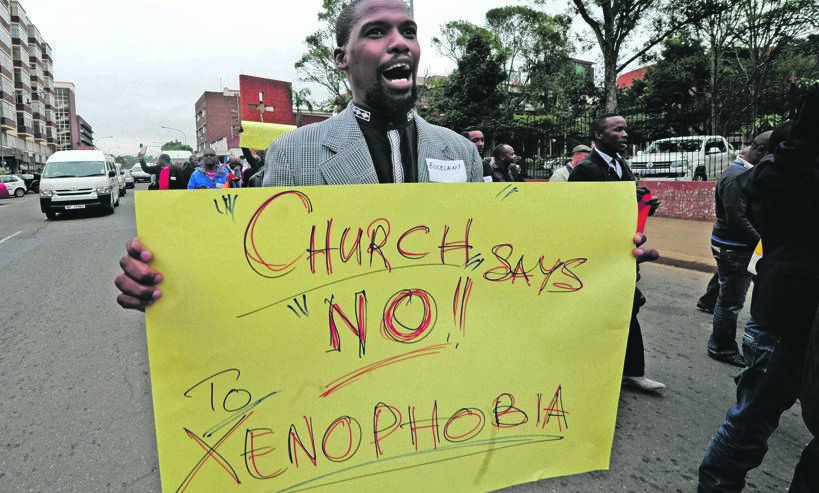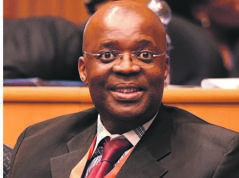
The so-called foreigner has featured prominently in this year’s elections compared with previous ones. This happens when, some opinion polls suggest, very few South Africans regard this as an issue, as opposed to jobs, the economy, corruption and service delivery. Yet each of the three major political parties – the ANC, DA and EFF – have touched on this subject in their respective election manifestos and have included it in their public pronouncements.
It is not difficult to see why this is the case. The “foreigner” is at the top of the political agenda in Europe and in meetings between the African Union and the EU.
Many in Europe are turning to the political right in response to what is perceived as the deluge of migrants from beyond who are unstoppable, even against the torrents of the Mediterranean Sea and the unbreakable Schengen border barrier.
While in Europe the foreigner is equated with the terrorist, across the Atlantic, this phenomenon takes the form of an unrelenting caravan of the jobless, of women and children, who fear no steel wall nor armed militia and vigilante groups awaiting them at the Mexican border.
Read: Foreigners are pawns in politician's 'dangerous, misleading'blame game
The foreigner was once a critical driver in the historical evolution of Europe and the New World across the Atlantic. What a paradox, even in South Africa.
This country’s entry into modernity was thanks to the encounter with the foreigner, the coloniser. The ANC of the formative years, of Pixley ka Seme, was conceived as a movement which was to transcend borders that were not just artificial but also a foreign intrusion for the “divide and rule” of the oppressed.
Without the foreigner – in this case, the Malawian, Clements Kadalie – the Industrial and Commercial Union (ICU) would not have seen the light of day in 1919 as the first black trade union formation. The Communist Party of SA (CPSA), when it was formed in 1921, was as foreign as the Marxist-Leninist ideology it introduced into this country.
No shaft would have reached the belly of the Kimberley mines without the sweat of the Basotho migrant labour force. No gold would have turned Johannesburg into the powerhouse it became without the super-exploitation of multitudes of Mozambique’s able-bodied men.
So, why is South Africa so fearful of the foreigner when the country owes its existence to the foreign?
The foreigner will not be wished away. Somalians and Ethiopians will continue to run their corner stores. Zimbabwean handymen and house-helps congregating around construction sites will not disperse and disappear into the wind.
For years to come, because of the uneven development of our continent, South Africa will continue to be a magnet for asylum seekers, for street traders in search of greener pastures, and for men and women trying to provide for their families. A scorched earth policy is not an option. Mass deportations are as short term as the intervention of Paracetamol against a headache today, only to be forced to endure a more painful one tomorrow.
This must be a multipartisan matter, not a political issue.
The EFF proposes to do away with borders; how interesting. But a border that separates two countries is an international boundary that can only be removed through a bilateral or multilateral process – not unilaterally. A country can choose to do away unilaterally with its side of the border, but this action is meaningless unless reciprocated by the neighbour on the other side.
The dust should settle on this issue after the elections. Then, we should strive for a multipartisan consensus to build our country and unite our people.
We should avoid equating the foreigner with criminality. The so-called undocumented migrants are not an underground cell of elements, embedded here to destroy our country. Many, many of them are mere economic refugees.
Three key interventions for integration will be necessary.
First, the foreigner should be conceptually integrated into our theory of the “national question”, which has helped us understand and manage the relationship between race, class and ethnicity. Here, the binary contrast – a false one at that – is between the foreigner and the citizen. Both are temporary and historical categories that have evolved with our society.
The citizen is an ID-paper creation of our modern times, as our immediate neighbours are ethnically of the same stock as ourselves. Their skin is as black as ours.
Read: Politicians need to stop using the immigrant bogeyman
Second, at local level, the foreigner should disappear into the embrace of the citizen through integration into our communities for social cohesion. Keeping the foreigner outside and isolated, while living among us, turns petty squabbles between neighbours into a xenophobic incident. Government has a big role to play, but communities must lead.
Third, we need an integrated policy that does not confuse the phenomenon of the foreigner with immigration issues. Once the foreigner lives among us, they must be one of us. By portraying his presence in our midst as a manifestation of the failure of border control or a hopeless immigration regime, we keep them outside, isolated and unwanted. But the reality is, they are not going anywhere.
This Africa Month, let us remember that the foreigner is here to stay and our policy must come to terms with this reality.
In their public pronouncements, our leaders should accept this fact.
Maloka is adjunct professor at the Wits School of Governance and CEO of the African Peer Review Mechanism
TALK TO US
Do you regard migrants who have settled in SA as your compatriots or as fellow citizens? Why do you think xenophobia persists in this country?
SMS us on 35697 using the keyword FOREIGN and tell us what you think. Please include your name and province. SMSes cost R1.50




 Publications
Publications
 Partners
Partners









